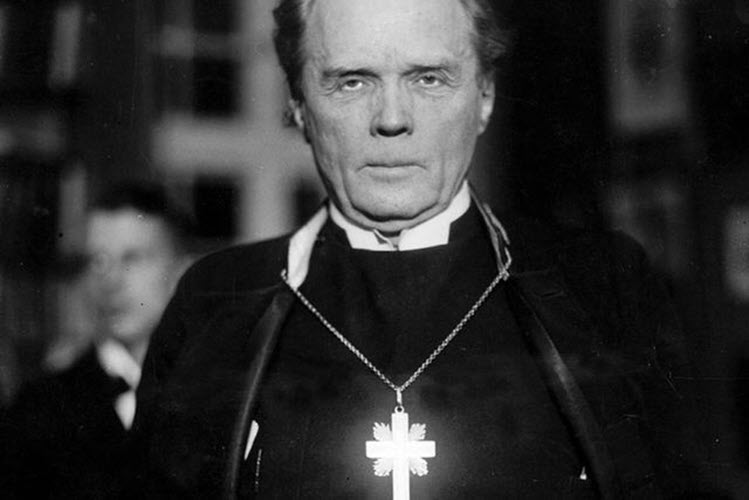The Educational Journey of Jonathan Soderblom

Jonathan Soderblom (15 January 1866 – 12 July 1931) was a Swedish clergyman. He was awarded the Nobel Peace Prize in 1930.
Early Life And Education
Lars Olof Jonathan Söderblom, known as Nathan Söderblom, was born on January 15, 1866, in Trönö, Sweden. He was the son of Jonas Söderblom and Nikolina Sophie Blume. His early life was marked by a strong Christian upbringing, which later influenced his theological pursuits. Söderblom’s educational journey began at Uppsala University, where he studied theology and philosophy, reflecting his early interest in spirituality and religion. This foundation set the stage for his significant contributions to interfaith dialogue and the ecumenical movement.
Career And Achievements
Jonathan Soderblom career was marked by a deep commitment to ecumenism, the movement promoting unity among Christian denominations and dialogue between different faiths. Soderblom’s efforts in fostering understanding and cooperation among religious communities were recognized globally, culminating in him being awarded the Nobel Peace Prize in 1930. A pivotal moment in his career was the organization of the Stockholm Conference in 1925, which was a significant milestone in the modern ecumenical movement, emphasizing the importance of unity and social action among Christians. Soderblom’s legacy is characterized by his visionary leadership and dedication to peace and interfaith understanding, leaving an indelible impact on the world’s religious and peace-building endeavors.
Notable Events And Milestones
Jonathan Söderblom was ordained as a priest in 1893 after completing his education at Uppsala University. His early career included a ministry position at the Swedish Embassy in Paris, where he served notable figures such as Alfred Nobel and August Strindberg. Söderblom’s commitment to interfaith dialogue and Christian unity was evident in his work, which led him to become the Archbishop of Uppsala in 1914, a position he held until his death in 1931. During World War I, Söderblom advocated for peace and justice, working to improve the conditions of prisoners of war and refugees. His vision for church unity had a profound purpose: to present the gospel to the world and demonstrate that the teachings of Jesus were relevant to social life. He was a key figure in the Christian “Life and Work” movement of the 1920s, recognized as one of the principal founders of the ecumenical movement. His efforts towards intercommunion between the Church of Sweden and the Church of England, alongside his association with English ecumenist George Bell, were pivotal in advancing ecumenical dialogue.
Söderblom’s leadership culminated in the organization of the World Conference of Life and Work in Stockholm in 1925, a landmark event in the ecumenical movement that brought together representatives from various Christian denominations. This conference emphasized the importance of unity, common worship, and social action, laying the groundwork for future interfaith cooperation. For his tireless work in promoting peace among religious communities, Söderblom was awarded the Nobel Peace Prize in 1930. His legacy extends beyond his lifetime, as he is commemorated in the Calendar of Saints of the Lutheran Church. Söderblom’s influence on history is marked by his dedication to fostering understanding among different religious traditions, his leadership in the ecumenical movement, and his unwavering commitment to peace and social justice. His work has inspired countless individuals and organizations to continue the pursuit of unity and harmony across diverse faiths, making his contributions to society, culture, and the world enduring and significant. Nathan Söderblom’s life and legacy serve as a testament to the power of faith and dialogue in building a more peaceful and united world. Nathan Söderblom passed away on 12 July 1931, leaving behind a profound legacy of promoting peace, unity, and interfaith understanding.
Awards And Honors
- Nobel Peace Prize (1930): Awarded for his efforts in promoting ecumenism and fostering peace among religious communities.
- Archbishop of Uppsala (1914-1931): Served as the head of the Church of Sweden and was a significant religious figure during this time.
- Founder of the Life and Work movement: Contributed to the establishment of this movement within the World Council of Churches, which focused on social justice and Christian unity.
- Organizer of the Stockholm Conference (1925): Played a pivotal role in organizing this historic conference that marked a milestone in the modern ecumenical movement.
- Commemorated in the Calendar of Saints of the Lutheran Church: Recognized for his contributions to the church and is commemorated annually on July 12.
- On 20 November 2015, a Google Doodle was created to celebrate Nadine Gordimer’s 92nd Birthday.
Additional Resources
- The Nobel Prize website offers a detailed biography and facts about Söderblom’s life and work.
- Wikipedia provides comprehensive information on Söderblom’s contributions to theology and his role as Archbishop of Uppsala.
- A quick overview of his achievements, especially his receipt of the Nobel Peace Prize, is available for a speed read on the Nobel Prize.
- Söderblom’s selected works, which may be available at university libraries or specialized bookstores.
- Documentaries on the history of the Nobel Peace Prize, which often feature laureates like Söderblom.
- Visiting the Uppsala Cathedral in Sweden, where Söderblom served as Archbishop, can provide a historical context to his life’s work.
Observer Voice is the one stop site for National, International news, Sports, Editor’s Choice, Art/culture contents, Quotes and much more. We also cover historical contents. Historical contents includes World History, Indian History, and what happened today. The website also covers Entertainment across the India and World.
Follow Us on Twitter, Instagram, Facebook, & LinkedIn

